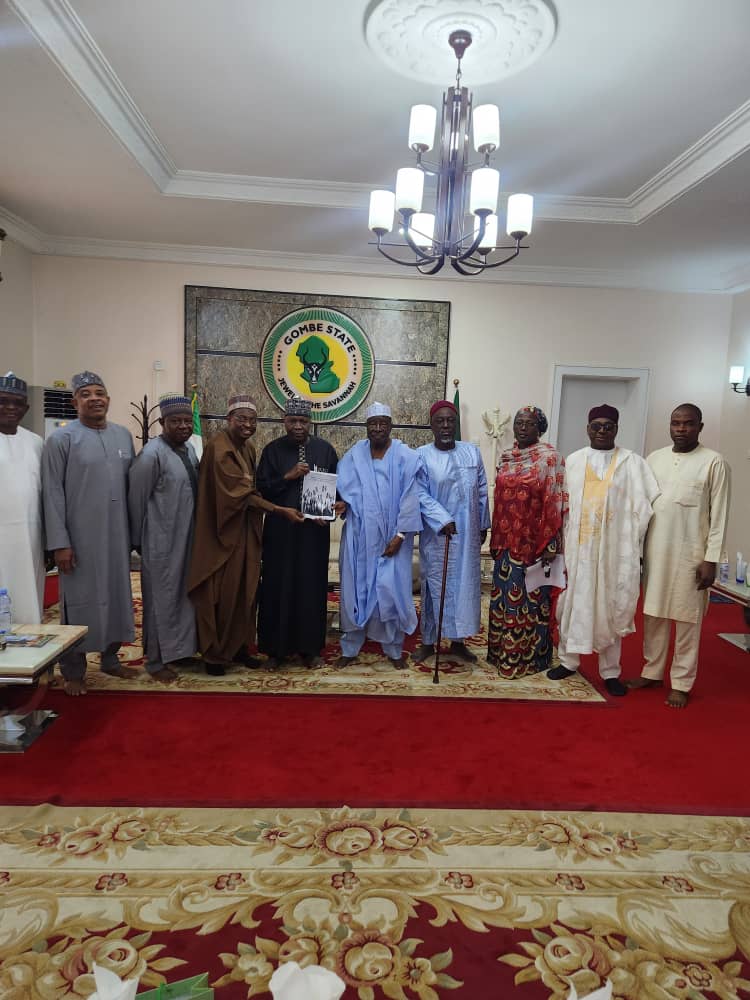From Charity Nwakaudu, Abuja
The Northern Elders’ Forum (NEF) has raised concerning over the Federal Government’s proposed Tax Reform Bills, urging immediate suspension of their implementation and calling for extensive dialogue with stakeholders.
The forum criticized the government for failing to engage critical stakeholders and experts before drafting the reforms.
NEF expressed its position in a statement signed by its Chairman of Management Board Al-Amin Daggash, highlighting the reforms’ potential adverse effects on Northern Nigeria and the nation as a whole.
Daggash said: “To begin with, contrary to the desperate attempt by the Lagos/Ibadan axis of the media, to glibly frame the robust and animating discourse still gaining nationwide currency, on the proposed Tax Reform Bills, by focusing it on the concave and myopic lenses of North-South dichotomy, truth be told.
“The salient contributions that are coming from a broad section of Nigerians, from all the six geo – political zones, have so far, ably succeeded in deepening, enriching and modifying the proposed Tax Reform Bills, well ahead of so many necessary amendments, to be legislated by the National Assembly.
“It is terribly shocking, that, in this time and age, with nearly three decades of unbroken experimentation of democratic governance, our dear country (Nigeria), will be so sadly saddled with a government that is working assiduously, to deny its citizens, the vigorous ventilation of democratic opinions and freedom of expression.
“Since coming into office, the government of President Bola Ahmed Tinubu, has brazenly operated with a total contempt and sardonic disdain for any patriotic voice of dissent and a palpable proclivity for emasculating its imaginary opponents.
“Nowhere is this more abundantly evident, than in the undemocratic way the government is openly arm-twisting the critical public to the sheepish acceptance of and the slavish submission to the highly toxic proposal it hurriedly packaged and euphemistically tagged, as, Tax Reform Bills.
“Once again, it is necessary to reiterate, that indeed, Nigerians in general and Northerners in particular, are not really against the introduction of any form of good and meaningful reforms by those in positions of authority, at the federal, state or local government levels.
“Even though, we shall remain very implacable in reaffirming that, our practical experiences teaches us, that, going by global best practice, successful reforms are known to be underpinned by strict adherence to certain common cardinal characteristics of the public policy-making process.
“For convenience of exposition, these similarities include, but, not limited to the under listed basic essentials: Extensive pre-reforms early engagements with experts and critical stakeholders, in order to secure their buy-in
“Establishing a very well-defined media/communication strategy, that clearly articulates the full import of the reforms and disseminates public awareness and mass enlightenment on a nationwide scale.
“Designing a robust, transparent and inclusive implementation mechanism. Pro-actively putting in place a well-sequenced process, in order to ensure that the meticulously planned reforms, really meet the society’s desired and anticipated outcomes.
“The Northern Elders’ Forum, make bold to say, that, the recently proposed Tax Reform Bills by the Federal Government, were clearly in the breach, with regards to adhering to the above listed common characteristics of reforms and public policy-making process, all over the world and in conformity with the global best practice.”
NEF accused the administration of President Bola Ahmed Tinubu of suppressing dissenting voices and forcing compliance with what it described as “draconian” tax policies.
The Forum emphasized that patriotic voices should not be silenced in a democratic society.
NEF added, “The Federal Government should immediately suspend the rush to implement the proposed Tax Reform Bills, so as to more wisely use the medium of dialogue to allay all concerns, collect all quality contributions and critical inputs from cross sections of Nigerian stakeholders, and then finally proceed to accommodate and redesign the sequencing of the implementation strategy.
“As a consumption tax which drastically reduces the purchasing power of citizens, fuels inflation and hikes in interest rates, no increase in VAT should be imposed, pending the emergence into the national horizon, of clear evidence of the promised economic recovery by the government.
“The proposed formula contained in the NTAB is not fair to the states where VAT revenue is generated, as the consuming states are denied credit for what has been generated from them. Since VAT is a General Consumption Tax (GCT), the rule of attribution based on the location of consumption should be uniformly applied.
“Since Section 162(2) of the 1999 Constitution (as amended) grants the RMAFC, the sole authority to determine the formula for equitable revenue sharing among the three tiers of government, no attempt should be made by the ruling authority, to whimsically change this provision, as doing so, is capable of undermining the law of the land and disrespect of democratic principles.
“The plan to move the exceedingly performing developmental and technological institutions, with a secured means of sustainability, such as, TETFund, NITDA and NASENI, to the uncertain and hazardous future of budgetary allocation should be halted. We strongly recommend that the status quo should be maintained by the government, so as to strengthen and protect these strategic national institutions.
“That, given our diversity and the importance the government attaches to promoting financial inclusion, the use of contentious terms like “ecclesiastical,” in the original proposed Tax Reform Bills, should be seamlessly replaced with “religious.”
“That, religious, charitable organizations and family inheritance wealth, should be exempted from paying all forms of taxes, as this is prone to conflicts over citizens’ strict adherence to some religious obligatory laws.”
The Forum urged the Federal Government to focus on fostering trust through dialogue and transparency, ensuring that the reforms benefit all Nigerians equitably.
